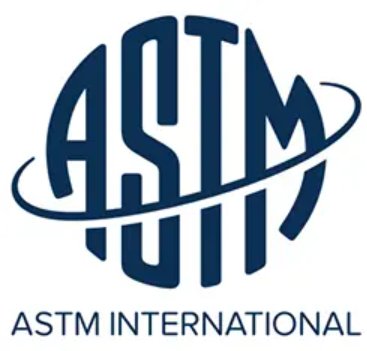

1. Accelerated Testing Standards: Paint Standards
Which ASTM standards simulate real-world exposure to factors like sunlight, water, and chemicals for predicting paint performance w.r.t. Paint Standards?
Explanation: ASTM standards D609 and D822 are specifically designed for accelerated testing, simulating real-world exposure to predict paint performance.
2. Standards for Artist Paints
Which ASTM standard ensures the labeling of art materials for chronic health hazards?
Explanation: ASTM standard D4236 ensures the labeling of art materials for chronic health hazards.
3. Standards for Architectural Coatings
Which ASTM standards focus on evaluating properties like hiding power, scrub resistance, and washability of paints used in buildings?
Explanation: ASTM standards D4227 and D4259 provide guidelines for evaluating properties of architectural coatings, including hiding power, scrub resistance, and washability.
4. Standards for Caustics and Peroxides
Which ASTM standards ensure the proper analysis and safe handling of caustics and peroxides used in paint production?
Explanation: ASTM standards E222 and E298 ensure the proper analysis and safe handling of caustics and peroxides in paint production.
5. Standards for Benzene, Toluene, Xylenes
Which ASTM standards ensure the quality and purity of solvents like benzene, toluene, and xylenes commonly used in paints?
Explanation: ASTM standards D841 and D847 ensure the quality and purity of solvents like benzene, toluene, and xylenes commonly used in paints.
6. Standards for Biodeterioration
Which ASTM standards assess the resistance of paints to mold and algal growth, preventing surface disfigurement?
Explanation: ASTM standards D2574 and D3273 assess the resistance of paints to mold and algal growth, preventing surface disfigurement.
7. Standards for Cellulose and Cellulose Derivatives
Which ASTM standards provide testing guidelines for the properties of key paint binders, cellulose, and cellulose derivatives?
Explanation: ASTM standards D817 and D871 provide testing guidelines for the properties of key paint binders, cellulose, and cellulose derivatives.
25+ Relevant topics on Codes & Standards
Short Article on Codes & Standards


A Glimpse into the Colorful World of ASTM Paint Standards
ASTM International, a trusted name in standardization, sets a vast array of standards for paints and related coatings. These standards play a crucial role in ensuring the quality, consistency, and performance of various paints used in numerous applications.
From Weathering Woes to Artistic Delights:
This first part of our exploration delves into the diverse aspects covered by ASTM paint standards:
- Accelerated Testing: Standards like D609 and D822 simulate real-world exposure to factors like sunlight, water, and chemicals, helping predict paint performance before actual on-site application.
- Acids and Alcohols: Standards like E1146 and E202 ensure the purity and quality of these key ingredients used in paint production.
- Application and Surface Preparation: Standards like D4227 and D4259 provide guidelines for proper surface preparation and coating application, maximizing paint adhesion and effectiveness.
- Architectural Coatings: Standards like D1849 and D2064 focus on evaluating properties like hiding power, scrub resistance, and washability of paints used in buildings.
- Artist Paints and Related Materials: D4236 ensures the labeling of art materials for chronic health hazards, while D4302 and D4838 offer standards for artists’ oil and acrylic paints.
- Benzene, Toluene, Xylenes: These ubiquitous solvents find their place in many paints, and standards like D841 and D847 ensure their quality and purity.
- Biodeterioration: D2574 and D3273 assess the resistance of paints to mold and algal growth, crucial for preventing unsightly surface disfigurement.
- Caustics and Peroxides: Standards like E222 and E298 ensure the proper analysis and safe handling of these essential, yet potentially hazardous, paint ingredients.
- Cellulose and Cellulose Derivatives: D817 and D871 provide standards for testing the properties of these key paint binders.
Table of Contents
Don’t miss the Course on Effective Isometrics Management: Check Now
Enrollment Link
Recommended courses (Published on EPCLand)
- Complete Course on Piping Engineering
- Basics of Piping Engineering
- Piping Layout Engineering
- Piping Material Engineering
- Piping Stress Analysis
- Material Requisitions
- Piping Material Specifications
- Valve Material Specifications
- Plant Design & Layouts-OISD 118
- Isometric Management
Library of Technical Articles
Don’t miss out the collection of 15+ articles on following topics:
- Basics of Oil and Gas Industry
- Valves
- Testing
- Tank
- Piping Bulk Items
- Pipe
- Metallurgy
- Piping Materials
- Layout
- Instrumentation
- Heat Exchanger
- Type of Contracts
- Codes and Standards
- ASTM Standards
- Articles on Piping Specialty Items
Video details of Complete Course on Piping Engineering
Why Enroll in the EPCLand
Proven Track Record– PTR
Activities & Achievements before launching EPCLand
- Published more than 50+ short courses
- 3000+ Enrolments
- More than 3,500,00 Minutes of watch hours in the last 2 years
- 4000+ Students in 100+ Countries
- Rating of 4+ out of 5
- 1000+ YouTube Videos
- 8K+ Subscribers
What Students will Learn
- Codes & Standards of the Energy Sector
- Piping Material Engineering
- Piping Layout Engineering
- Stress Analysis
Interesting facts
- All the published courses have been developed by Industry Experts with more than 2 decades of experience
- Content is based on Practical experience and real-time problems.
- Content is designed and organized in such a manner that it can be easily grabbed.
- Complete website, Blogs and Quiz sections are Planned, Designed and published by myself (About me: Atul Singla)
- Complete flexibility of Time & Location, Students can access the content from anywhere & anytime
- Moreover, once enrolled, the content can be access as many times as you want, which helps in understand the fundamentals in a better way.
Conclusion
In conclusion, our courses are meticulously crafted by industry experts with over two decades of hands-on experience. The content is rooted in practical knowledge, addressing real-time problems. The material is thoughtfully designed and organized for easy comprehension. Every aspect, from the website to blogs and quizzes, has been planned, designed, and executed by Atul Singla, ensuring a comprehensive and seamless learning experience. With the flexibility of accessing the content at any time and from any location, students have the freedom to learn on their terms. Furthermore, enrollment grants unlimited access, allowing learners to revisit the material as often as needed, fostering a deep understanding of the fundamentals.



